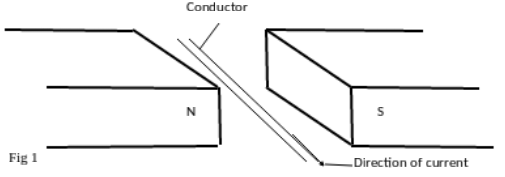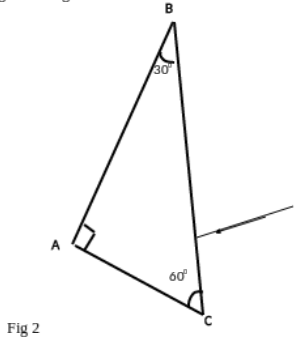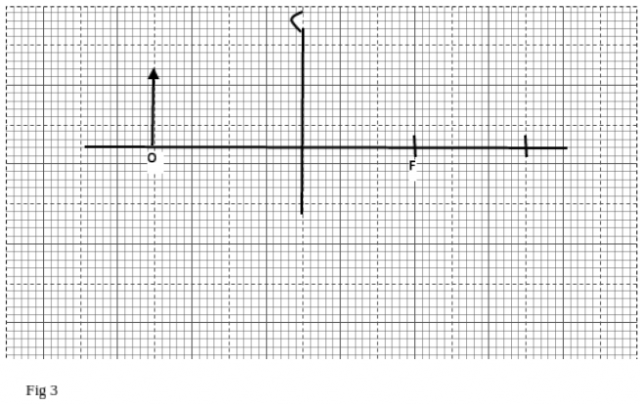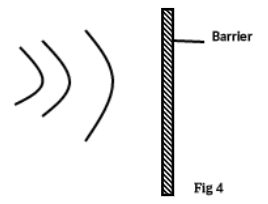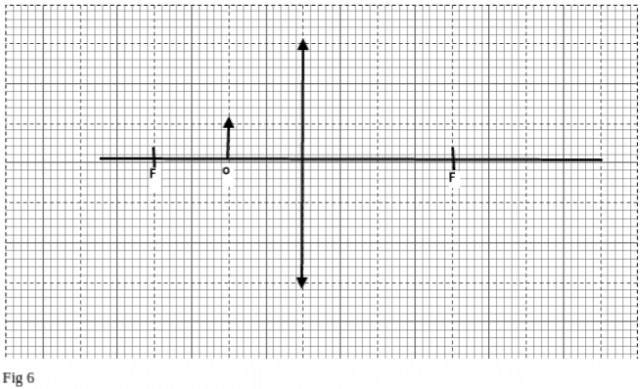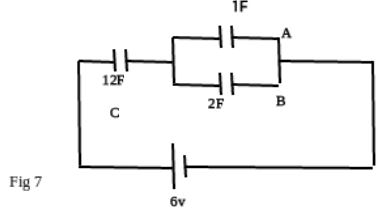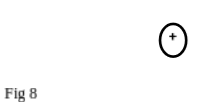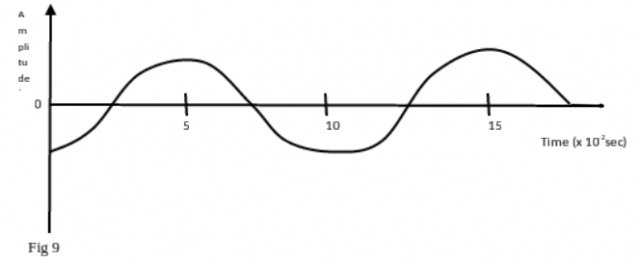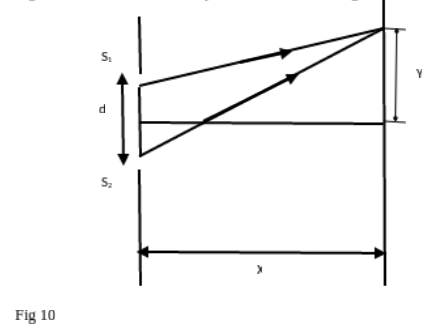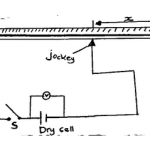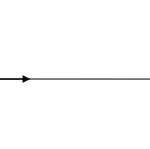KNEC KCSE Physics Paper 2 – 2015 – Machakos County Trial
2015 KCSE Machakos County Trial
Physics Paper 2
SECTION A (25 Marks)
Answer ALL the questions in this section in the spaces provided.
A circuit consists of a battery, metal wire, ammeter and a switch connected in series. The switch is closed and the ammeter reading noted. The metal wire is now heated.
(a) State the observations made on the ammeter reading. (1mark)
………………………………………………………………………………………………………………..
………………………………………………………………………………………………………………………
(b) Give one reason for the above observation made (1mark)
…………………………………………………………………………………………………………………
……………………………………………………………………………………………………………………
2 marks
5 images are formed when two mirrors are inclined at an angle between them. Determine the angle of inclination.
……..……………………………………………………………………………………………………………
…..………………………………………………………………………………………………………………
2 marks
A battery is rated 100AH. How long will it work if it steadily supplies a current of 2.5A (2marks)
..…………………………………………………………………………………………………………
……………………………………………………………………………………………………………
2 marks
A current carrying conductor AB is in a magnetic field as shown in figure 1 below.
Indicate the direction of the force F acting on the conductor. (1mark)
………………………………………………………………………………………………………………
State two factors that determine the direction of the force F. (2marks)
….…………………………………………………………………………………………………
…………………………………………………………………………………………………………
3 marks
Figure 2 shows an incident ray normal to the surface BC of a right-angled glass prism ABC. The critical angle of the glass is 42o
Complete the diagram to show the path of the ray. (2marks)
2 marks
Figure 3 show an object placed in front of a convex mirror.
On the same diagram draw the appropriate rays and locate the image formed.
3 marks
A house has two 100w bulbs, two 60w bulbs and one 75w bulb. Determine the cost of having all the bulbs switched on for 60 hours, given that the cost of electricity is 50cents per kilowatt hour.
.. ………………………………………………………………………………………………………
……………………………………………………………………………………………………………
3 marks
Figure 4 shows circular waves approaching a plane barrier in uniform medium.
On the diagram sketch the reflected waves.
2 marks
Arrange the following in order of decreasing wavelength: x-rays, infrared, microwaves, gamma rays. visible light, radio waves, ultra violet.
………………………………………………………………………………………………………………
………………………………………………………………………………………………………………
2 marks
Explain why most of the x-ray tube is surrounded by lead metal.
………………………………………………………………………………………………………………
………………………………………………………………………………………………………………
1 marks
The expression below is an equation for a radioactive element P. Element Q and R are the daughter nuclides. P, Q and R are not the actual symbols of any of the elements.
Identify the element R and state two of its characteristics.
R…………………………………………………………………………………………….. (1mark)
Characteristics
i………………………………………………………………………………
ii…………………………………………………………………………… (2marks)
3 marks
The figure 5 below shows a block diagram of a p-n junction diode. On the same diagram, show how a cell may be connected so that it is reverse biased.
1 marks
SECTION B (55 Marks)
Answer ALL the questions
Figure 6 shows an object placed 5cm in front of a convex lens whose focus length is 10cm.
On the same figure, draw a ray diagram to show the position of the image formed. (3marks)
Use the ray diagram to determine
The image distance (1mark)
…………………………………………………………………………………………………………
………………………………………………………………………………………………………
The image size (1mark)
…………………………………………………………………………………………………………
…………………………………………………………………………………………………………
The magnification (2marks)
…………………………………………………………………………………………………………
…………………………………………………………………………………………………………
7 marks
a) Explain how a negatively charged electroscope gets discharged when the cap is touched with a
finger. (2marks)
…..…………………………………………………………………………………………………………
…………………………………………………………………………………………………..…………
………………………………………………………………………………………….………………….
……………………………………………………………………………………………………………..
………………………………………………………………………………………………………………
b) Figure 7 shows capacitors A, B and C connected as shown with a battery if e.m.f 6v and zero internal resistance
Determine:
1.The effective capacitance of the circuit. (3marks)
……………………………………………………………………………………………………………
……………………………………………………………………………………………………………
2.The potential difference across 12F capacitor (3marks)
……………………………………………………………………………………………………………
……………………………………………………………………………………………………………
3. Change stored in 1F capacitor. (3marks)
……………………………………………………………………………………………………………
……………………………………………………………………………………………………………
c) Figure 8 shows an isolated positive point charge P
On the figure, sketch the electric field pattern around the charge. (2marks)
13 marks
a) State one difference between electromagnetic waves and mechanical waves. (1mark)
……………………………………………………………………………………………………………
……………………………………………………………………………………………………………
……………………………………………………………………………………………………………
……………………………………………………………………………………………………………
b) The wave shown in figure 9 below has a velocity of 200m/s.
Determine:
(i) The period T of the wave (1mark)
……………………………………………………………………………………………………………
……………………………………………………………………………………………………………
(ii)The frequency of the wave. (2marks)
……………………………………………………………………………………………………………
……………………………………………………………………………………………………………
(iii)The wavelength of the wave. (3marks)
……………………………………………………………………………………………………………
……………………………………………………………………………………………………………
c) Figure 10 below shows two rays of monochromatic light incident on two adjacent slits S1 and S2
State what is observed on the screen when the:
(i)Distance X is increased. (1mark)
……………………………………………………………………………………………………………
……………………………………………………………………………………………………………
(ii)Slit separation, d is reduced. (1mark)
……………………………………………………………………………………………………………
……………………………………………………………………………………………………………
(iii)White light is used. (1mark)
……………………………………………………………………………………………………………
……………………………………………………………………………………………………………
10 marks
a) A bar magnet is moved into a coil of insulated copper wire connected to a centre-zero galvanometer as shown in figure 11 below.
(i) Show on the diagram the direction of induced current in the coil. (1mark)
(ii)State and explain clearly what is observed on the galvanometer when the magnet is moved into and then withdrawn from the coil. (4marks)
……………………………………………………………………………………………………………
……………………………………………………………………………………………………………
b) A transformer has 800 turn in the primary and 40 turns in the secondary winding. The alternating
e.m.f connected to the primary is 240v and the current is 0.5A.
Determine
(i)The secondary e.m.f (3marks)
……………………………………………………………………………………………………………
……………………………………………………………………………………………………………
(ii)The power in the secondary if the transformer is 95% efficient. (2marks)
……………………………………………………………………………………………………………
……………………………………………………………………………………………………………
c) Explain how energy losses in a transformer are reduced by having
(i)A soft-iron core (1mark)
……………………………………………………………………………………………………………
……………………………………………………………………………………………………………
(ii)A laminated core. (1mark)
……………………………………………………………………………………………………………
……………………………………………………………………………………………………………
12 marks
a. i) Distinguish between thermionic emission and photoelectric emission. (2marks)
……………………………………………………………………………………………………………
……………………………………………………………………………………………………………
……………………………………………………………………………………………………………
……………………………………………………………………………………………………………
ii). State one factor which affects the rate of each of the above types of emission. (2marks)
……………………………………………………………………………………………………………
……………………………………………………………………………………………………………
……………………………………………………………………………………………………………
……………………………………………………………………………………………………………
Sodium has a work function of 2.3 ev. given that planck’s constant, h=velocity of light in vacuum and mass of an electron ,calculate
(i)its threshold frequency (2marks)
……………………………………………………………………………………………………………
……………………………………………………………………………………………………………
……………………………………………………………………………………………………………
……………………………………………………………………………………………………………
(ii)The maximum velocity of the photoelectrons produced when the sodium is illuminated by light of
wavelength (4marks)
……………………………………………………………………………………………………………
……………………………………………………………………………………………………………
……………………………………………………………………………………………………………
……………………………………………………………………………………………………………
……………………………………………………………………………………………………………
……………………………………………………………………………………………………………
(iii)The stopping potential V, with the light of this wavelength. (2marks)
……………………………………………………………………………………………………………
……………………………………………………………………………………………………………
12 marks
